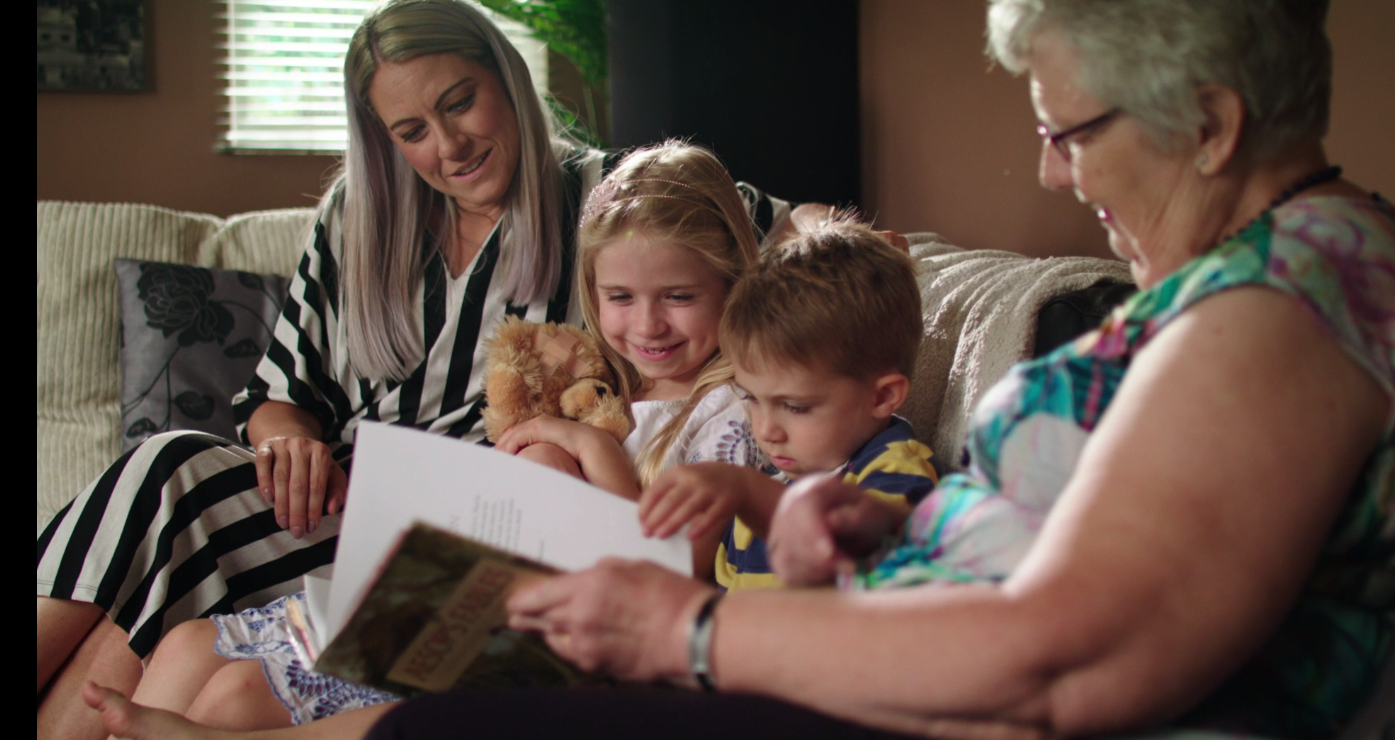
Legal guide to child maintenance, if you are a millionaire
The Barclays “Prosperity Index” estimates that 1 in 67 UK adults is a millionaire. The population of Nottinghamshire is approximately 823,126. That means that there could be over 12,000 millionaires within Nottinghamshire. If that is you, and you (or someone you know/love) you will find this article helpful for those going through a divorce where there are dependent children involved.
UK child maintenance law, or child support as it is more commonly known, recognises that couples often allocate different roles within their marriage. One parent, often the mother, does more childcare. While this is invaluable, it often means stepping off the career ladder and having no or little independent income. The other spouse, typically the father, may often set out to be the breadwinner, and at the time of separation may have a (much) greater earning capacity. The concept of ongoing maintenance was created to recognise the stay-at-home parent’s sacrifices, and to allow her or him to adjust to a life without the other spouse.
Let us deal first with child support.
This is a maintenance claim, available to all parents, married or unmarried. The payer (or breadwinner) can also ask to be assessed. There is an online Child Maintenance (CMS) calculator which is relatively easy to use that can be found here: https://www.gov.uk/calculate-child-maintenance
It is sensible, where parents can tolerate this, if they sit down together and input a single set of data into the CMS calculator. If they put in different figures (for overnight stays or for earnings), the calculator generates two different, but “correct” answers.
The CMS take into account the following data:
- how many children you have
- the paying parent’s income (the main breadwinner’s)
- how much time children spend with the paying parent
- whether the paying parent is paying child maintenance for any other children.
The following sets out the basic rate, which is what is applied for those earning over £200/week.
Stage one: The paying parent’s gross income is reduced depending on the number of children living with them. This includes the children of a new partner.
| Number of children living with the paying parent | Percentage gross income is reduced by |
| One | 11% |
| Two | 14% |
| Three or more | 16% |
Stage two: Maintenance is a percentage of the amount left after any deductions are made in stage one. The percentage depends on the number of children that need to be paid for. The amount is rounded to the nearest pound.
The first £800 of any earnings is assessed on the percentage shown in the first column of the table below. Any earnings over £800 per week are assessed on the percentage shown in the second column. These two amounts are then added together.
| Number of children applied for |
Percentage of gross income up to £800 |
Percentage of gross income over £800 |
| One |
12% |
9% |
| Two |
16% |
12% |
| Three or more |
19% |
15% |
Stage 3: If you are sharing overnight childcare for at least 52 nights a year or more then the maintenance calculation above is reduced.
| Number of nights your child stays with paying parent | Amount maintenance is reduced by |
| 52 – 103 | One seventh |
| 104 -155 | Two sevenths |
| 156 – 174 | Three sevenths |
| 175 or more | One half, plus an extra £7 a week reduction for each child in this band |
Stage 4: If the paying parent has other children they don’t live with
If your child’s other parent has children from another relationship that they don’t live with, the amount of maintenance you receive is reduced. The amount the paying parent needs to pay is split between you and the other receiving parent. This is called apportionment.
For the very wealthy family, or for children that have considerable/unusual needs, this may not be the end of the child maintenance story.
If the paying parent’s gross weekly income is more than £3,000, the receiving parent can apply to the courts for extra child maintenance.
Unmarried parents with children in their care can make an application for top up maintenance (perhaps for educational costs) through something called “Schedule 1 of the Children Act”. Married parents can make maintenance claims through the divorce courts, under something called the Matrimonial Causes Act (MCA).
Once you are claiming to Court, there isn’t a hard and fast rule. You cannot say for instance “the payer must pay me 10% of his net income”. The Court has wide discretion, over the outcome it imposes. However, the starting point is likely to be a CMS/Child Support calculation as outlined above.
You have to crunch some numbers to see who pays child maintenance and how much.
You take the amount of child support from the payer’s monthly income. You would then take away his other essential monthly expenses, to see whether or not that left a surplus.
You would then look at the payee’s monthly net income. You would add to that, the amount of child support. You would take from that total, all the payee’s essential monthly expenses and you would ask, ‘does that leave a deficit?’
If the payer has a surplus and the payee has a deficit when those numbers are crunched, then arguably maintenance should be paid, to the spouse who is worse off.
The next question is, how long must child maintenance will be paid.
That can depend on a number of factors including: earning capacity; parents’ ages; the children’s ages, needs and health.
Imagine a mother who was highly skilled before parenthood, whose children are about to leave school. She might need maintenance for just a few years, whilst she gets back into the world of work, and to cope with any additional expenses for any of the children.
At the other end of the scale, a wife might have been entirely dependent on her husband’s income for so many years that she has no real prospect of returning to work. She might at the same time be old, or in poor health. The Judge might then say, “you should have some maintenance from your husband for the rest of your life, even if we reduce the annual amount after the first few years, until your pension kicks in”.
A court can impose a bar on a wife extending the terms of any Maintenance Order – e.g. it can last for 10 years and be non-extendable. A court can even if say “I recognise that this spouse has a great financial need, and whilst husband cannot really afford maintenance now, he might be able to afford a payment in the years to come, so I am going to make a nominal order for £1 per year. The husband won’t actually pay that £1 each year, but it means there will be a live order, that the wife can apply to vary upwards if the husband can ever afford to pay it”.
Note that Maintenance Orders are not automatically reviewed, but there can be provisions in court orders, obliging the payer to share his income details with the payee annually.
Child maintenance is always paid direct to the ex-spouse/parent.
Although where it provides for university aged children, sometimes private arrangements are made, to pay the child direct instead and, this may surprise some people.
There is no legal provision, obliging the recipient, to use the maintenance for a particular purpose. Once your ex-spouse gets the maintenance, they can spend it on whatever they choose, whether you like it or not.
It is much better to both agree what child maintenance should be paid (and for how long), than to leave this kind of decision to the court.
It is hard for lawyers to predict outcomes, in maintenance cases, not just because the Judge has a wide discretion over his or her answer, but also because sometimes ex husbands and wives will dispute the (alleged) facts that the other person is putting forward. In short, maintenance cases are ripe for negotiation and compromise. A good way to compromise is to get round a table, to work together on a solution by the collaborative law method.
How Hopkins Solicitors Can Help You
We offer an in-depth legal consultation for a fixed fee of £180 (inc VAT).
In this meeting will listen to your full story and give you legal advice that is specific to your personal situation. It includes a detailed follow-up advice letter covering everything discussed such as: your legal options, the legal steps involved and estimated costs.
After the meeting there is no pressure to hire us straight away. We understand that often at this stage, you may simply be doing your research to understand what legal options you have.
To book a consultation enquire online or contact one of our Family Law Solicitors, on 0115 910 5555 or 01623 468 468.
Request a Callback
Related Articles
-

Be Alert to Cyber Fraud: A Warning to Clients
Members of the public must be vigilant of cyber fraud at all times. Scammers will often pose as a trusted…
-

Care proceedings Court of Appeal win
Hopkins Solicitors (instructed for the children) have acted in the recent Court of Appeal case of Re P and E…
-

New government pilot with Resolution for family disputes
On Tuesday March 26, 2024 the UK Parliment considered a formal question on family resolution and particularly, Resolution’s “Vision For…